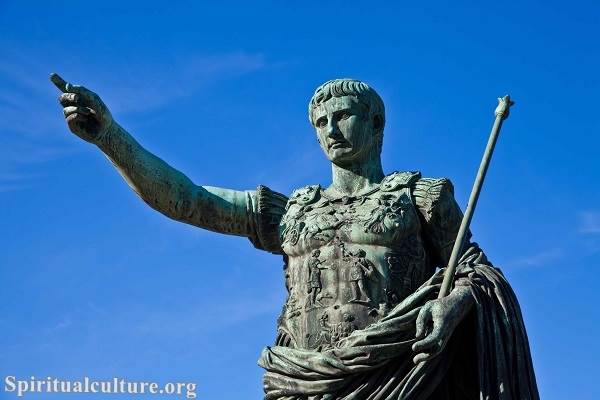These tribes represent a significant aspect of Jewish history and identity, famed for their roles in ancient Israel and their subsequent disappearances from historical record following the Assyrian conquest. Today, many questions remain about their identity, their descendants, and their influences on various cultures. In this comprehensive article, we will explore the historical background, the fate of the lost tribes, their modern descendants, cultural impacts, and the enduring myths surrounding this fascinating topic.
Historical Background of the Lost Tribes
Formation of the Twelve Tribes
The Twelve Tribes of Israel originated from the sons and grandsons of Jacob, a patriarch in the Hebrew Bible, also known as Israel. According to biblical accounts, the tribes were descended from Jacob’s twelve sons: Reuben, Simeon, Levi, Judah, Issachar, Zebulun, Dan, Naphtali, Gad, Asher, Joseph, and Benjamin. Joseph’s two sons, Ephraim and Manasseh, were also given tribal status, often leading to a total of thirteen entities but still referred to as twelve tribes overall due to their collective grouping.
These tribes played a crucial role during the Exodus from Egypt and the subsequent conquest of Canaan. Each tribe occupied specific territories within the Promised Land, contributing to a collective identity based on shared lineage, history, and religious practices.
The Assyrian Conquest and Exile
The fate of the Northern Kingdom, known as Israel, drastically changed in the 8th century BCE. In 722 BCE, the Assyrian Empire invaded and conquered the Northern Kingdom. This conquest led to the exile of many Israelites, and the Assyrians implemented a policy of population displacement designed to break the identity and resistance of conquered peoples. Large numbers of Israelites were deported, and new populations were settled in the region to intermix with remaining inhabitants. This event was critical, as it effectively initiated the dispersal of the Ten Lost Tribes of Israel, leaving them largely without a defined identity or homeland.
Distinction Between the Southern and Northern Kingdoms
Following Solomon’s reign, the united kingdom of Israel split into two: the Northern Kingdom (Israel) and the Southern Kingdom (Judah). While Judah comprised the tribes of Judah and Benjamin, along with many Levites, the Northern Kingdom was composed of the remaining ten tribes. After the Assyrian conquest, the Southern Kingdom continued to exist for another century until it fell to the Babylonian Empire in 586 BCE. This distinction is essential in understanding the different historical fates of the tribes and their descendants.
The Fate of the Ten Lost Tribes
Migration Patterns and Historical Accounts
Historical accounts of the Ten Lost Tribes are often fragmented and laden with myth. After the Assyrian exile, some groups likely migrated to various regions of the Assyrian Empire, moving toward areas such as Media (modern-day Iran) and ultimately farther east. Other narratives suggest they ventured southward toward Africa or westward into Europe. Strikingly, various ancient historians, including Josephus and several medieval travelers, have made claims about encounters with these tribes, often citing their supposed locations and connections with different cultures.
Theories About Their Current Locations
Over the centuries, numerous theories have proposed potential current locations of the Lost Tribes. Some of these include:
- Afro-Asiatic Claims: Some groups in Africa, such as the Beta Israel of Ethiopia, claim descent from the lost tribes. Historical accounts suggest that Jews may have reached Ethiopia during the time of the Babylonian Exile.
- India and Asia: Various sects in India, such as the Bene Israel and the Cochin Jews, also layclaim to connections with the Lost Tribes.
- Native American Connections: Some theorists have speculated links between Native American tribes and the lost tribes, proposing that certain customs and beliefs reflect ancient Israelite practices.
- European Descendants: Various groups in Europe, particularly within the Celtic and Anglo-Saxon cultures, have been interpreted as potential descendants. Though these claims lack solid historical evidence, they persist in folklore.
Interactions with Other Cultures and Societies
Throughout their supposed migrations, the Lost Tribes interacted with countless cultures, sometimes adopting local customs while preserving elements of their Israelite heritage. Such blending resulted in unique cultural identities, both in terms of religious practices and social structures. For example, the Beta Israel community in Ethiopia retained ancient Jewish customs mixed with local traditions, creating a distinctive yet recognizable Jewish identity.
Modern Descendants and Their Identities
Jewish Communities Claiming Descent
In today’s world, several Jewish communities assert their lineage tracing back to the Lost Tribes. Notably, the Bnei Menashe, a group from the Indian state of Manipur, believe themselves to be descendants of the tribe of Manasseh. They have garnered attention within the Jewish community and have been recognized and supported by some Israeli organizations.
Genetic Studies and Ancestry
Modern genetic studies have contributed meaningful insights into understanding Jewish ancestry. Research utilizing Y-chromosome and mitochondrial DNA analysis has revealed connections among different Jewish communities, suggesting a common heritage despite geographic distances. However, establishing direct descent from the Lost Tribes remains challenging due to historical interruptions, forced migrations, and a lack of comprehensive genealogical records.
Contemporary Groups Linked to the Lost Tribes
Several groups across the globe continue to claim descent from the Lost Tribes, enriching the global tapestry of Jewish identities. The most recognized among them are:
- Bene Israel: A Jewish community in India that has historical ties to Jewish practices and customs, believed to have roots dating back to the time of the exile.
- Kaifeng Jews: A small Jewish community in China with a history dating back to the Song Dynasty that displays unique adaptations of Jewish traditions.
- Igbo Jews: Some members of the Igbo ethnic group in Nigeria adhere to beliefs and practices resembling those of the ancient Israelites.
Cultural and Religious Impact
Practices and Beliefs of Descendants
Cultural practices among the descendants of the Lost Tribes often bridge ancient traditions and contemporary expressions of faith. For instance, in communities like the Bnei Menashe, biblical practices such as observing Kosher laws, celebrating Passover, and recognizing the Sabbath highlight their claimed heritage. Similarly, many Igbo Jews draw on cultural sensitivities to emphasize a yearning for connection with the wider Jewish diaspora.
Contributions to Global Jewish Identity
The existence of communities claiming descent from the Lost Tribes contributes significantly to the diversity of Jewish identity. They bring unique cultural flavors, a reflection of the many historical paths that Jewish people have traveled globally, reinforcing the idea that Jewish identity can encompass a range of customs while rooted in shared beliefs.
The Role of Tradition in Differentiating Groups
Tradition plays a crucial role in how these communities distinguish themselves. Whether through unique liturgical practices, distinct clothing styles, or maintained dietary laws, a complex interplay of culture and religion denotes their identity. These differences highlight diverse interpretations of Jewish heritage, often deviating from mainstream Jewish practices yet remaining intrinsically linked to ancient traditions.
Speculation and Mythology Surrounding the Lost Tribes
Popular Theories and Misconceptions
The narrative surrounding the Lost Tribes has attracted various myths and misconceptions over the centuries. Popular media and literature often sensationalize the topic, incorporating fictional narratives and extravagant claims that can obscure genuine historical understanding. For instance, some portrayals link the Lost Tribes with conspiracy theories about secret societies or reject the historical identities of modern Jewish communities, risking discrediting authentic lived experiences.
Case Studies of Alleged Lost Tribes Groups
Numerous groups have claimed descent from the Lost Tribes, each with its interpretations and historical narratives. For example, one of the most contentious claims comes from the Lemba people in southern Africa, who assert ancient Jewish roots. Genetic studies suggest they possess unique markers appearing in Jewish populations, but these claims remain subject to debate.
The Importance of the Lost Tribes in Contemporary Culture and Religion
The idea of the Lost Tribes retains a powerful allure in contemporary culture. In religious contexts, the notion of rediscovering lost heritage resonates with many Jewish people desiring a deeper connection to their roots. This exploration fosters greater inclusivity within the Jewish community, prompting some to revisit their perceptions of identity and belonging.
Conclusion: Relevance in Today’s Context
The Significance of the Lost Tribes in Modern Jewish Studies
The Lost Tribes remain a focal point in modern Jewish studies, prompting investigations into diaspora cultures and reshaping understandings of Jewish identity. Scholars, historians, and genealogists continue to probe existing records and oral traditions in search of more conclusive evidence linking modern groups to the ancient tribes.
Continuing Mysteries and Searches for the Lost Tribes
The search for the Lost Tribes addresses broader questions about identity, belonging, and history. As researchers uncover fascinating narratives surrounding these tribes, modern society’s understanding of what it means to be part of the Jewish community continues to evolve.
In conclusion, the Lost Tribes of Israel represent more than just ancient history; they symbolize a complex tapestry of identity, migration, and cultural intertwining that speaks to our contemporary quest for connection amidst an increasingly globalized world. Whether through concrete genealogical links or through cultural expressions of heritage, the impacts of these tribes remain a resonant part of the ongoing story of the Jewish people today.



